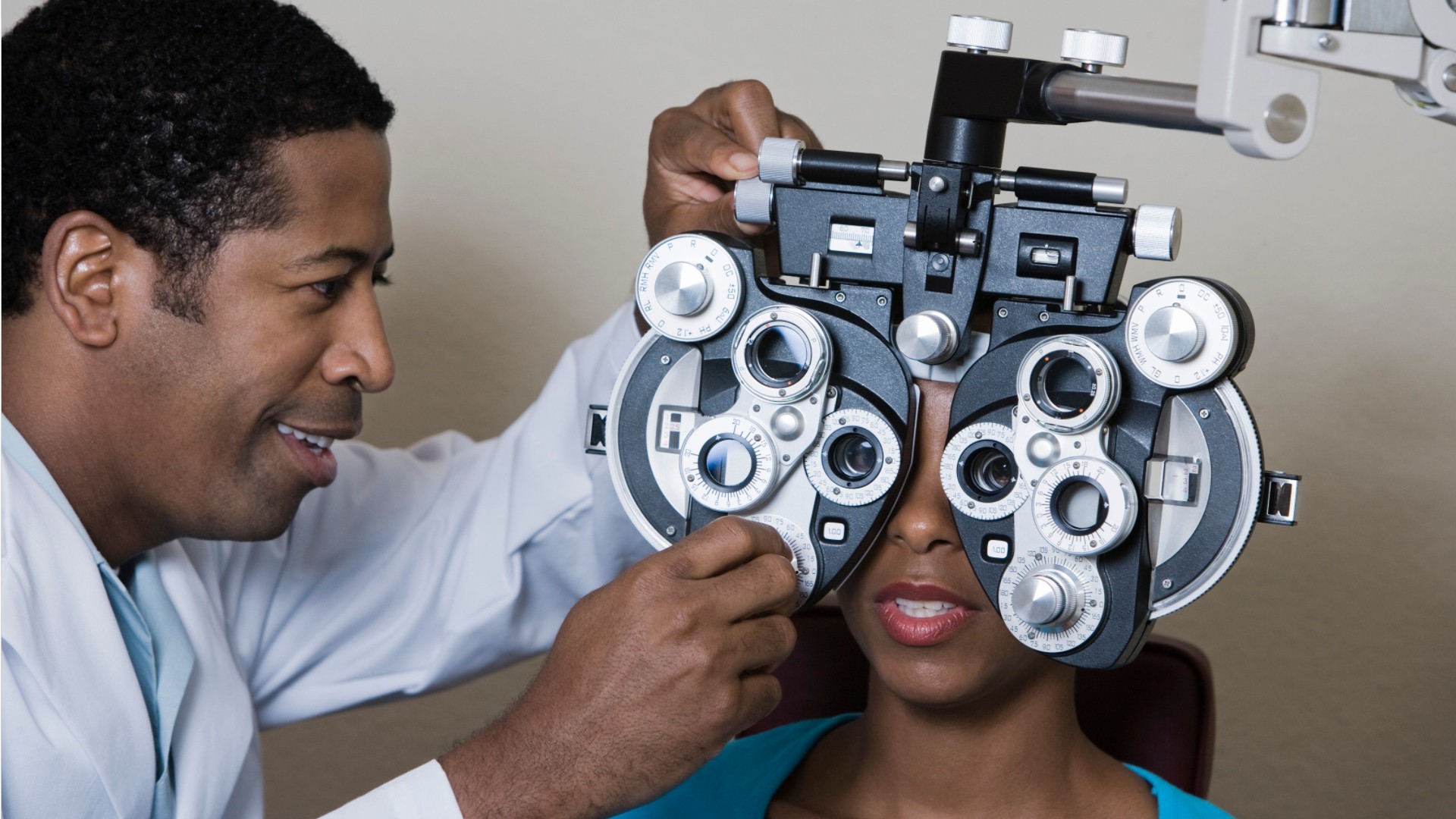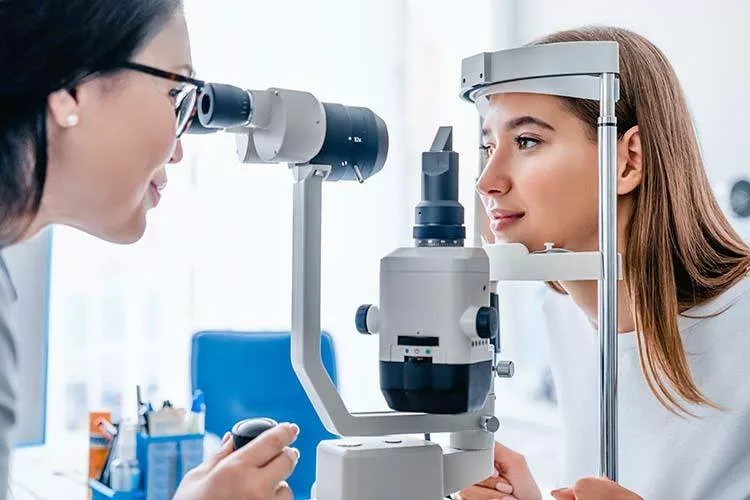Understanding the Comprehensive Function of an Eye Doctor in Modern Eye Care
With improvements in innovation and a raising focus on precautionary treatment, optometrists are essential in identifying and handling chronic eye conditions, while additionally involving in early condition detection. Just how do these obligations converge with their duty in advertising total eye health, and what does this mean for person outcomes in a collective healthcare environment?
Expanded Range of Technique
In current years, the role of optometrists has actually advanced significantly, with numerous specialists currently embracing an increased scope of method that extends past conventional eye exams. Their duties now include a broad variety of solutions, including prescribing drugs for eye problems, handling chronic eye diseases, and doing small medical procedures.
Additionally, eye doctors are currently more associated with joint treatment, functioning very closely with ophthalmologists, medical care physicians, and various other medical care experts to ensure holistic client treatment. This interprofessional collaboration is crucial in taking care of complicated cases that need a multidisciplinary strategy. In addition, eye doctors are playing a pivotal function in public health campaigns, such as vision testings and eye wellness education, focused on improving neighborhood wellness results.
The increased scope of method for eye doctors not just enhances their capacity to offer extensive treatment however also addresses the growing need for reliable and easily accessible eye treatment services, adding to total medical care renovations.
Very Early Illness Discovery
Early discovery of eye diseases is significantly becoming a centerpiece in the expanded function of optometrists. As main eye treatment providers, eye doctors are distinctly placed to identify early signs of eye conditions such as glaucoma, macular degeneration, diabetic person retinopathy, and cataracts. This crucial role is crucial, as early medical diagnosis can dramatically improve the administration and diagnosis of these conditions, possibly protecting against vision loss and enhancing person results.
Optometrists employ detailed eye assessments to spot refined changes in vision and eye health. The ability to acknowledge early indicators of systemic health and wellness problems, such as high blood pressure and diabetes mellitus, via ocular indications better emphasizes the relevance of normal eye examinations.
Furthermore, eye doctors play an important function in patient education and learning, stressing the value of regular eye assessments as component of total health and wellness maintenance. By promoting a positive method to eye care, eye doctors contribute significantly to public wellness, making certain conditions are caught and taken care of successfully prior to they can advance.
Advanced Diagnostic Strategies
Advanced analysis strategies have actually reinvented the practice of optometry, making it possible for practitioners to spot and check ocular diseases with extraordinary accuracy. Technologies such as optical coherence tomography (OCT) offer high-resolution, cross-sectional images of the retina, assisting in early detection of problems like glaucoma and macular degeneration.
An additional essential innovation is electronic retinal imaging, which catches detailed sights of the retina making use of high-definition cameras. This modern technology is important in recognizing modifications in retinal structure in time, thus aiding in the administration of conditions like diabetic retinopathy. Aesthetic field testing, boosted by computer-aided systems, allows for exact mapping of an individual's field of view, vital in tracking and diagnosing glaucoma development.
Corneal topography, an additional notable analysis device, Recommended Reading creates comprehensive maps of the cornea's surface area. This is specifically valuable in fitting get in touch with lenses and preparing refractive surgical procedure. These advanced analysis methods collectively allow optometrists to supply aggressive, targeted care, making certain far better person results and reinforcing their critical function in eye health management.
Handling Persistent Eye Conditions
Handling persistent eye problems is a cornerstone of optometric treatment that needs a comprehensive understanding of different ocular conditions and their long-term ramifications. Optometrists play a crucial role in diagnosing, tracking, and managing problems such as glaucoma, diabetic person retinopathy, and age-related macular deterioration. These conditions, if left untreated, can bring about substantial visual problems or loss of sight, highlighting the essential importance of continuous treatment and management.
Eye doctors employ a variety of diagnostic devices, including optical comprehensibility tomography (OCT), visual area testing, and fundus photography, to analyze the development of these persistent conditions. By closely checking adjustments in eye wellness, optometrists can adjust therapy strategies to mitigate disease development. This might include prescribing medicines, recommending way of life adjustments, or collaborating with ophthalmologists for medical treatments when essential.

Role in Preventive Care
Precautionary care is a fundamental aspect of optometry that concentrates on keeping eye health and avoiding the start of ocular from this source illness. Eye doctors play a crucial function in early detection and avoidance, using routine eye evaluations to determine risk elements and refined changes in ocular health. Opticore Optometry. These assessments are not merely about vision adjustment however incorporate a thorough evaluation of eye functions and structures, allowing the recognition of problems such as glaucoma, cataracts, and macular degeneration at an early stage
Along with diagnostics, optometrists educate patients on way of living selections that promote eye health and wellness, such as correct nutrition, UV security, and the value of routine eye check-ups. They encourage on the right use of electronic tools to avoid digital eye stress, a growing concern in the electronic age. Optometrists also offer assistance on protective eyeglasses for entertainment and job-related activities, mitigating the risk of injury.
Preventive eye care includes systemic wellness issues that materialize in the eyes, such as diabetes and high blood pressure. By collaborating with various other healthcare specialists, eye doctors contribute to all natural client care, stressing the interconnectedness of systemic and eye health and wellness. This proactive method is necessary in guarding aesthetic acuity and overall well-being.
Conclusion
Optometrists currently inhabit a crucial function in contemporary eye care, defined by an increased scope that includes identifying and handling chronic eye problems, prescribing medicines, and performing small surgeries (Optometrist Chino). Their know-how in that site very early illness detection is enhanced by innovative analysis techniques such as optical comprehensibility tomography and electronic retinal imaging. By emphasizing preventative care and patient education, eye doctors contribute significantly to general eye wellness, working together with other medical care experts to ensure extensive and reliable individual end results

In addition to diagnostics, eye doctors inform clients on way of living choices that promote eye health and wellness, such as proper nutrition, UV security, and the importance of routine eye examinations.Preventive eye treatment extends to systemic wellness concerns that materialize in the eyes, such as diabetic issues and high blood pressure.Optometrists currently occupy a pivotal duty in modern eye care, identified by a broadened scope that consists of identifying and managing persistent eye conditions, recommending drugs, and carrying out minor surgical treatments.